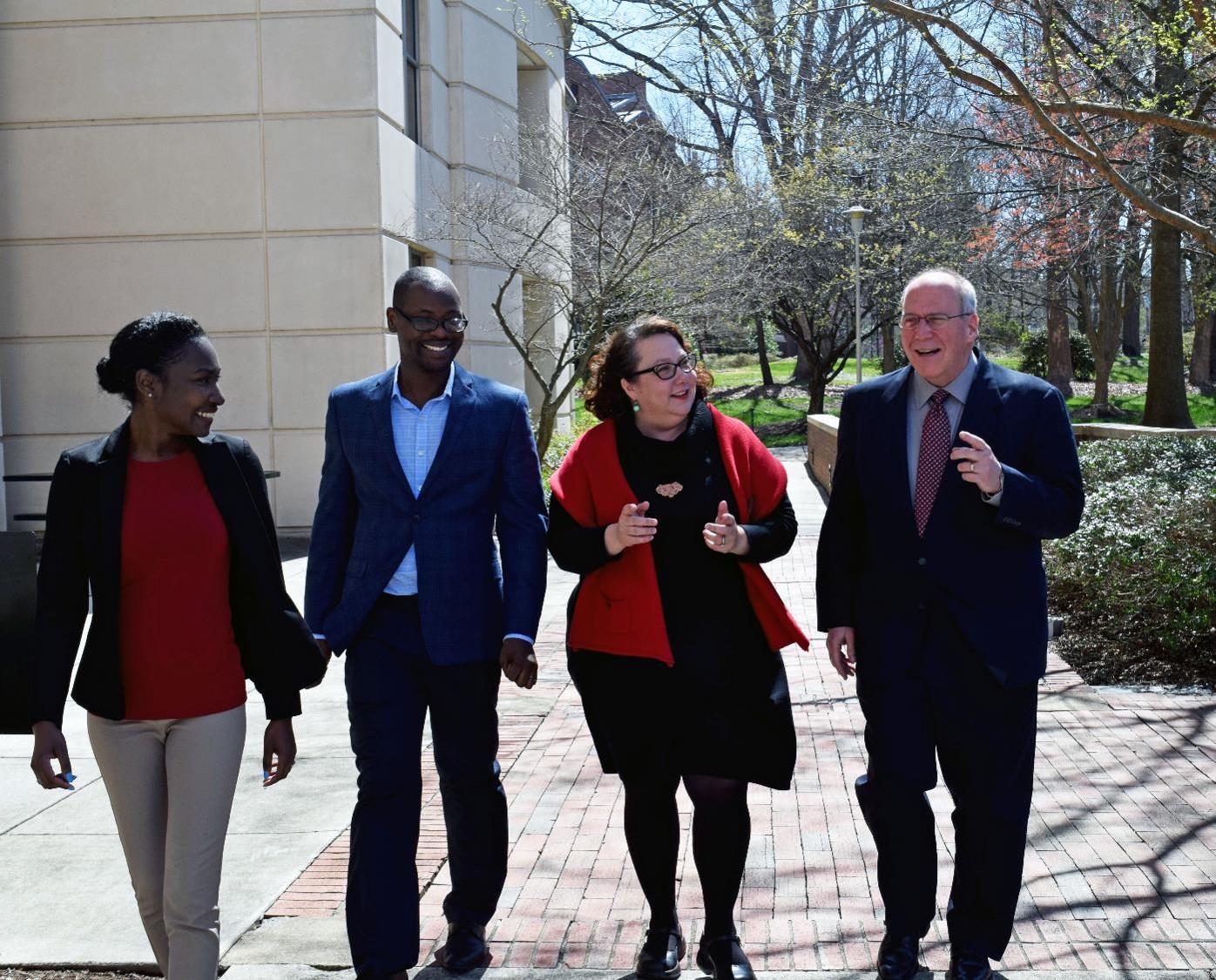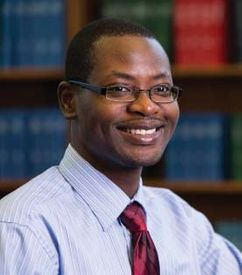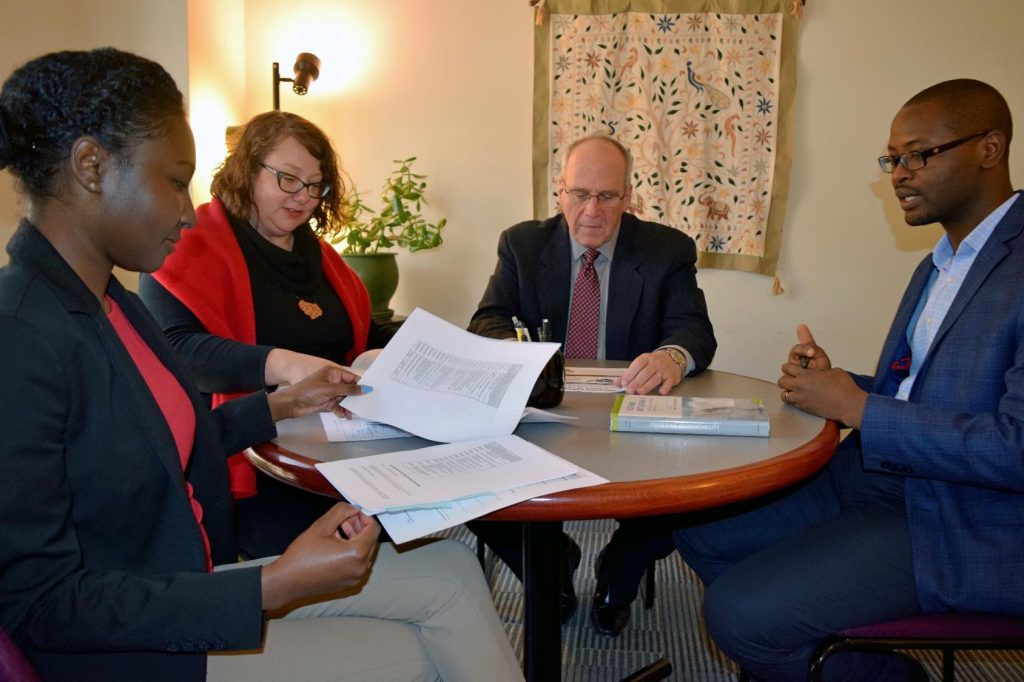For displaced children, UNC faculty are creating an innovative path home
A team of faculty from the School of Social Work at UNC-Chapel Hill won the 2017 C. Felix Harvey Award and will receive $75,000 to help abused and neglected children find permanent homes with their grandparents and other relatives
Published May 4, 2018
Each month, more than 400 children across North Carolina are removed from their birth homes due to child abuse or neglect. Although 30 percent of those children are able to live with relatives, only eight percent of those relatives will qualify for the same financial support as traditional foster parents[1].
Why is that, and what does it mean for these children and their relatives? More than half of relatives who step in to help are grandparents living on a fixed income. Federal and state financial support is available to kin in small amounts under the Work First program, but relatives must first become licensed to receive the full financial support that non-related foster parents receive.
486 children in NC are removed from their birth homes each month due to child abuse or neglect
30% of these children in NC are placed with relatives
Only 8% of relatives qualify for the same financial support as traditional foster parents
$75,000 in funding provided by C. Felix Harvey Award to UNC faculty to help solve the problem
Since 2008, the C. Felix Harvey Award has honored eleven faculty whose proposals best embody the combination of scholarship and creativity to positively impact constituencies outside the University.
The Innovate Carolina Network can connect you to a variety of funding sources, including research grants, awards, competitions, fellowships, investment groups and venture capital.
A team of faculty at the University of North Carolina at Chapel Hill’s School of Social Work is looking to solve this challenging issue. And by winning the 2017 C. Felix Harvey Award to Advance Institutional Priorities, these faculty innovators will receive $75,000 from the University to support their efforts. The faculty team includes:
● David Ansong, principal investigator and assistant professor
● Selena Childs, clinical assistant professor
● Kanisha Brevard, research associate
Mark Testa, Sandra Reeves Spears and John B. Turner Distinguished Professor, will serve as an advisor to the project. His research helped pave the way for the creation of the federal Guardianship Assistance Program (GAP), which North Carolina recently made available to grandparents and other relatives looking after children who have been removed from their birth homes.
Working with a community-based, multi-disciplinary team, these faculty want to develop, implement and rigorously test a new approach to qualify relative caregivers for the same level of guardianship assistance that adoptive parents receive.

The Harvey Award is presented to one UNC-Chapel Hill faculty-led project in the humanities and social sciences each year. It recognizes exemplary faculty scholars who are working to address real-world challenges and whose project reflects the University’s commitment to entrepreneurship and innovation.
The award funding will help this year’s faculty team create a process that will eliminate existing barriers for relatives by addressing their needs for child care, transportation, case management and financial assistance. This will help pave the way for more families to move into guardianship.
“Our approach with relatives is different from traditional foster parents. Most often, relatives take a child into their home and don’t have a lot of time to prepare. In addition, requirements to get licensed include time-intensive commitments and training,” says Childs. “With this project, we will design a process that makes it much easier and more streamlined for relatives.”

To bolster the project’s chances of success, the UNC team is collaborating with the Children’s Home Society of North Carolina and social services officials who oversee the licensing process and manage the GAP in counties across North Carolina. The goal of this public-private partnership is to develop a cost-effective licensing process explicitly tailored for relatives. This will help relatives become eligible to receive GAP funding, which can ultimately increase the number of children placed with licensed relatives.
“It’s unique to have key players from both the private and public sectors at the table to move this work forward,” says Ansong. “We will learn a lot from this truly innovative process as we come together to work through difficult challenges, using research evidence to drive policy.”
And the timing could not be better for North Carolina. As part of the federal 2008 Fostering Connections to Success and Increasing Adoptions Act, states were provided the opportunity to implement GAP. Although North Carolina has adopted the program, the state has not been able to move forward with implementation. That’s where UNC’s team will play a crucial role.

“With the Harvey Award funding and the current child welfare landscape, the state understands the time is right to fund this project and generate evidence and knowledge on how to better serve this population,” says Childs. “The timing is perfect for this project, and we are eager for the program to be successful.”
Not only will the program benefit relatives, it can ultimately benefit the state as well. Children in foster care cost the state about $60,000 per year. If a child moves to permanence or guardianship, the state’s cost drops to about $9,000, mainly due to staff costs, court hearings and access to greater resources[1].
“It’s about focusing on helping relative caregivers and the children in their care as they face many barriers,” says Brevard. “It’s important for the system to support relatives as much as possible to have the necessary resources to care for the kids. We’ll have to figure out how to best support them as they complete the process to become licensed.”
The team aims to implement a formal process and program by the end of 2019, piloting the program in three counties – Beaufort, Iredell and Mecklenburg. Ultimately, their goals are improved child safety, increased well-being and placing more children in permanent homes.
“We are on the cutting edge of generating knowledge for the field overall,” says Childs. “It’s exciting to know our findings, evidence and research may become relevant outside North Carolina in helping help abused and neglected children find permanent homes with their grandparents and other relatives.”

 | UNC-CH
| UNC-CH